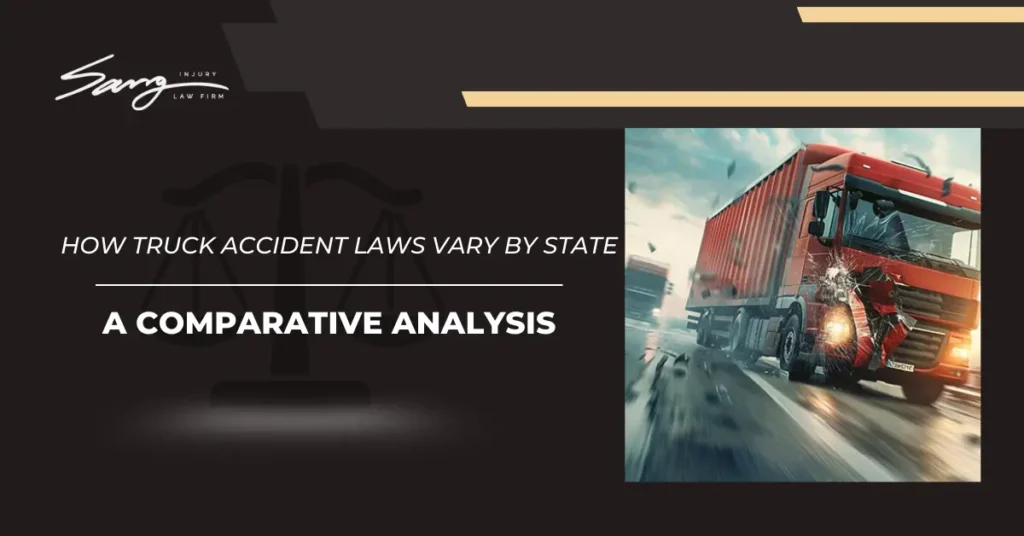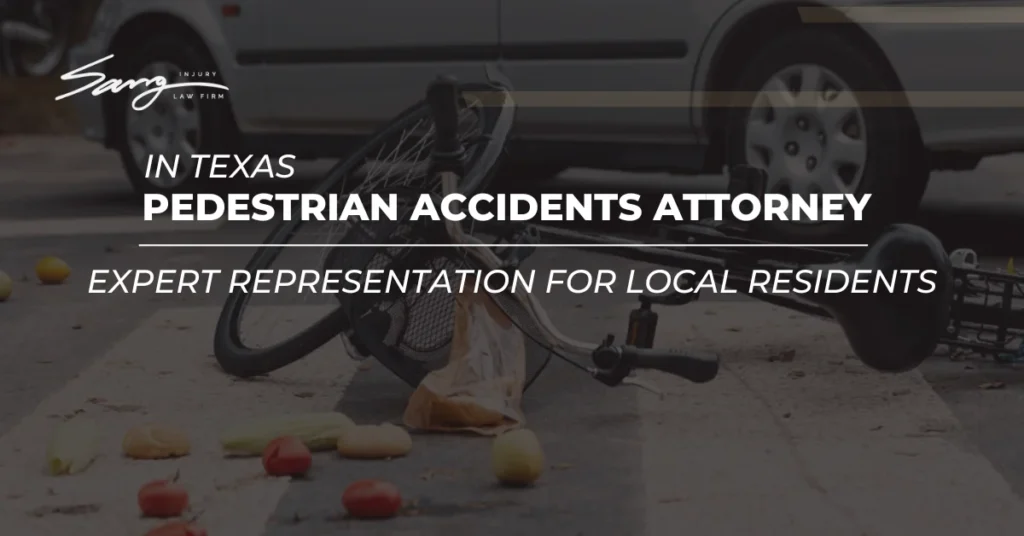Introduction
Navigating the aftermath of a truck accident is daunting, especially given the complexities of state-specific laws that govern such incidents. Understanding these legal variations is crucial for law firm professionals dedicated to truck accident law, as it directly impacts their ability to effectively represent and advise clients.
This comprehensive analysis explores how truck accident laws differ across states, providing valuable insights into the essential distinctions and their implications for victims. From federal baseline regulations set by the Federal Motor Carrier Safety Administration (FMCSA) to intricate state-specific rules, this guide aims to equip legal practitioners with the knowledge needed to navigate these challenging cases. By delving into the nuances of each state’s approach to negligence, insurance requirements, and statutes of limitations, law firm professionals can better prepare to secure the justice and compensation that truck accident victims rightfully deserve.
Overview of Federal Regulations
In the realm of truck accident law, it is essential to first understand the federal regulations that establish a standard for trucking operations across the United States. These regulations are primarily set by the Federal Motor Carrier Safety Administration (FMCSA) and include critical aspects such as hours of service, which dictate how long drivers can operate before requiring rest; maintenance and inspection requirements that ensure all vehicles are in safe working order; and licensing standards that all commercial truck drivers must meet. These federal rules create a uniform baseline from which each state can then adapt and enforce its own specific regulations. This foundational knowledge is vital for legal professionals as it sets the stage for understanding more complex, state-specific legal landscapes that govern truck accident liabilities and responsibilities.
Comparative Analysis of Negligence Laws
The approach to determining fault in truck accidents varies widely from state to state, significantly affecting legal strategies and client advisories. Generally, states may follow one of two models in negligence laws:
- Comparative Negligence: Under this model, if an accident occurs, the fault and damages are divided among the parties involved according to each party’s degree of fault. Many states allow victims to recover compensation even if they are partly at fault, although the recoverable compensation is reduced by their percentage of fault.
- Contributory Negligence: A few states adhere to this stricter model where if a victim is found to be even minimally at fault, they are barred from recovering any compensation. This can be particularly harsh as even a small error on the victim’s part can result in a total loss of recovery rights.
Navigating these differences is crucial for attorneys as they prepare for potential litigation, advising clients on what to expect based on where the accident occurred.
Insurance Requirements
Insurance plays a pivotal role in truck accident claims, not only due to the significant financial settlements often involved but also because of the severe damages and injuries these accidents can incur. Each state mandates minimum insurance coverage requirements for commercial trucks, which can have a substantial impact on the compensation available in accident claims. For instance:
- States like California require commercial trucks to carry substantially higher minimum coverages due to the higher risk associated with their size and the damage they can cause in an accident.
- In contrast, other states may have lower minimum requirements, which can complicate efforts to secure adequate compensation for victims suffering from severe injuries.
Understanding these state-specific insurance requirements is essential for law firm professionals. It not only impacts how they approach settlement negotiations but also influences their strategy in litigating severe injury cases. Ensuring that clients are fully aware of how these requirements affect their potential compensation is an integral part of the legal support provided.
Each of these steps from understanding federal regulations and navigating state-specific negligence laws to grasping the intricacies of insurance requirements forms a crucial part of a truck accident lawyer’s role. Mastery of these areas enhances a lawyer’s ability to provide informed, compassionate, and effective representation, ensuring that clients not only understand their rights but are also positioned to achieve the best possible outcomes in their legal proceedings.
Statute of Limitations
Understanding the statute of limitations for filing a truck accident claim is crucial as it varies significantly from state to state. This legal timeframe dictates how long you have to initiate a claim following an accident. For example, in some states, you may have as little as one year, while others may allow up to four years.
The variation underscores the importance of consulting with a knowledgeable truck accident lawyer as soon as possible after an incident. Acting swiftly ensures that your right to recover damages is not lost due to procedural timelines. This urgency in legal action is not just about adhering to legal requirements; it’s also about preserving crucial evidence and witness testimony that becomes harder to secure as time passes.
Specific State Regulations on Truck Weights and Sizes
Truck weights and sizes are regulated not just at the federal level but also by individual states, which can introduce complexities in handling truck accident cases. These regulations are in place to ensure road safety and protect infrastructure but can vary widely. For instance, states like California have specific rules for different types of trucks, such as lower weight limits on certain roads to prevent damage and enhance safety.
Understanding these specific regulations is vital as they directly impact liability assessments in the event of an accident. If a truck exceeds state limits and is involved in an accident, the operator or company could face increased liability. For lawyers, having a comprehensive understanding of these nuances in state regulations allows for a more accurate assessment of legal responsibility and case strategy.
Procedures for Filing a Truck Accident Claim
The procedures for filing a truck accident claim can also differ significantly depending on the state. Generally, the process begins with ensuring that all necessary documentation is gathered. This includes medical records, police reports, witness statements, and any evidence of damages incurred. The claim itself is usually initiated through the filing of specific legal documents, which must be served to the defendant or their representative.
In many states, this involves submitting paperwork through the court system, after which the defendant has a set period to respond. Navigating these procedural waters requires not just legal knowledge but also meticulous attention to detail to ensure that every step is correctly followed.
Each state may have its quirks, such as pre-filing requirements like notifying potential defendants within a certain period or specific forms that need to be used. Familiarity with these requirements is crucial for ensuring that the claim is processed efficiently and correctly. This comprehensive approach helps in managing the complexities of truck accident claims, guiding clients through each step, and making sure that their rights are protected throughout the legal process.
Handling truck accident claims involves a detailed understanding of intersecting layers of laws and regulations. For law firm professionals, mastering these details is not just about legal proficiency it’s about advocating effectively for clients who rely on their expertise to navigate these challenging and often life-changing situations. Being well-versed in these nuances allows lawyers to provide reassurance and clear guidance to clients, ensuring they feel supported and informed every step of the way.
Impact of Local Road Laws
Local road laws significantly influence truck accident litigation and can vary widely from one jurisdiction to another. These laws include specific speed limits for different types of roads, restrictions on the use of certain roads by commercial vehicles, and unique rules for commercial trucking operations. For example, some localities might restrict the movement of heavy trucks during peak traffic hours or on certain roads that are not designed to handle heavy loads.
Understanding how these local regulations align with or differ from state laws is crucial for building a strong case. It helps in determining liability, as violations of these laws can strongly influence fault in an accident. A thorough knowledge of both local and state regulations allows lawyers to accurately assess all factors contributing to an accident, ensuring that all relevant laws are considered in pursuing justice for clients.
Recent Changes and Legal Trends
Keeping abreast of recent legislative changes and legal trends is essential for truck accident lawyers. Recently, there has been a push towards incorporating more technology in tracking and logging truck drivers’ hours of service, such as the use of electronic logging devices (ELDs).
These devices are intended to provide more accurate and tamper-proof data, which can play a critical role in liability and fault determination in truck accidents. Changes in legislation that affect how evidence is collected and used can dramatically alter the landscape of truck accident litigation. For instance, new laws regarding the permissible use of such devices, data privacy, and how this information can be legally obtained and used in court are pivotal.
Understanding these trends not only helps lawyers adapt to new challenges but also provides them with advanced tools to better serve their clients. As legal frameworks evolve, staying updated ensures that legal practices remain effective and responsive to the dynamic nature of truck accident law, ultimately benefiting clients navigating the aftermath of a truck accident.
Conclusion
For law firm professionals and victims alike, understanding the nuances of truck accident laws across different states is paramount to navigating these complex cases successfully. Whether advocating for a client in court or negotiating a settlement, knowledge of these variances ensures that legal advice is not only accurate but also strategically sound. Engaging a knowledgeable truck accident law firm can make all the difference in securing the compensation that victims deserve, highlighting the importance of specialized legal expertise in this challenging field.






